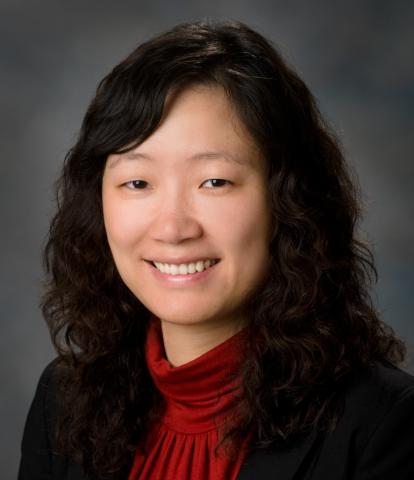Wenyi Wang, Ph.D.
Professor
Department of Bioinformatics and Computational Biology
Department of Biostatistics
The University of Texas MD Anderson Cancer Center
Seminar Information

Cancers can vary greatly in their transcriptomes. In contrast to alterations in specific genes or pathways, differences in tumor cell total mRNA content has not been comprehensively assessed. Technical and analytical challenges have impeded examination of total mRNA expression at scale across cancers. To address this, we evaluated total mRNA expression using single cell sequencing, and developed a model for quantifying tumor-specific total mRNA expression (TmS) from bulk sequencing data. We estimated and validated TmS in 5,205 patients across 15 cancer types identifying significant inter-individual variability. At a pan-cancer level, high TmS is associated with increased risk of disease progression and death. Cancer type-specific patterns of genetic alterations, intra-tumor heterogeneity, as well as pan-cancer trends in metabolic dysregulation and hypoxia contribute to TmS. Taken together, our results suggest that measuring total mRNA expression offers a broader perspective of tracking cancer transcriptomes, which has important clinical and biological implications.
Wenyi Wang received her Ph.D. in Biostatistics (Johns Hopkins University, 2007) and a joint postdoctoral training at Stanford Genome Technology Center and UC Berkeley Statistics (2007-2010). In 2010, she joined the Department of Bioinformatics and Computational Biology at the University of Texas MD Anderson Cancer Center, where she contributed to the Genome Data Analysis Network of the Cancer Genome Atlas projects and the International Cancer Genome Consortium PanCancer Analysis of Whole Genomes with her somatic mutation caller MuSE for calling subclonal mutations, and transcriptome deconvolution method DeMixT for dissecting tumor-stroma-immune signals, as well as a set of new analytical tools for accurate reconstruction of subclonal architecture using mutations. She also has 17 years of experience building statistical risk prediction models for inherited cancer syndromes, and has published in: JAMA, Journal of Clinical Oncology, Cancer Research, Genome Research and JASA. The corresponding computer tools are freely available to the research community and clinics and are widely used in hundreds of clinics worldwide. She is the lead PI of multiple R01 grants from the National Cancer Institute and individual research grants from the Cancer Prevention Research Institute of Texas. She is a standing member of NIH Cancer, Heart and Sleep Epidemiology Panel A (CHSA) study section.
She is particularly interested in the evolution of the human genome as well as the cancer genome. These two topics are fundamental to the understanding of the initiation, progression and treatment of human diseases. Currently her laboratory is focused on two research directions: 1) Development of deconvolution models in order to build an atlas of gene expression states of tumor and immune cells during cancer evolution; and 2) Statistical models for cancer risk counseling for individuals with deleterious germline mutations.
